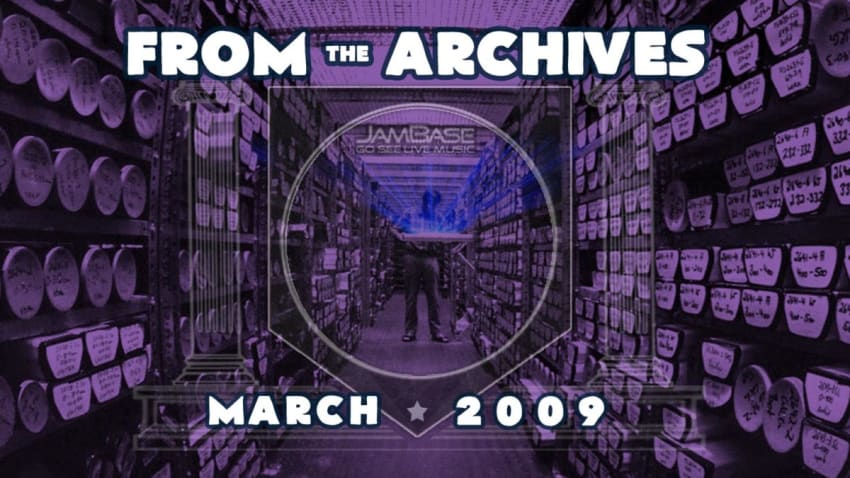Béla Fleck/Toumani Diabate | 03.19 | CA
By Team JamBase Mar 25, 2009 • 4:44 pm PDT

Béla Fleck & Toumani Diabate :: 03.19.09 :: Yoshi’s :: Oakland, CA
“Béla is someone who might have a hard time expressing himself with his mouth, but he can express himself perfectly with his fingers.”
 |
In an 80-minute set at Yoshi’s Oakland with Malian kora virtuoso Toumani Diabate, Fleck proved Sangare to be a prophet. Before the set and between songs, Fleck repeatedly expressed trepidation at his years-long quest to incorporate the banjo into the complex rhythmic patterns and diverse instrumentation of music from countries like Mali, Tanzania, and Gambia. Yet when it came time to actually do so – Fleck and Diabate each performed short solo sets before playing together for about 30 minutes – Fleck nailed it with nary a misstep. He even managed to push the boundaries of some of those songs, particularly “Buribalal,” an acoustic guitar-driven track by Afel Bocoum that he performed solo on a bass banjo, which had a fatter head, shorter neck, and warmer tone than a regular banjo.
In the solo portion of his set, Fleck played music he learned from artists during his Africa trip, particularly a beautiful melody he picked up from Anania Ngoglia, a blind thumb piano player and vocalist from Tanzania. He also played a song derived from the akonting, a three-stringed instrument from Gambia that is believed to be the world’s first known banjo.
Diabate, a 2006 Grammy winner for In the Heart of the Moon, his collaboration with the late great Ali Farka Touré, is one of those musicians who have to be seen to be believed. Born into an iconic Malian family that includes 71 generations of griots, Diabate has been at the forefront of efforts to both preserve the legacy of traditional kora music but also find new ways to introduce the kora to audiences around the world.
Diabate sat on a small box facing the kora, a 21-string harp-lute. In his mighty hands, the instrument was a small symphony unto itself. Diabate’s index fingers played the melody, while his mighty thumbs – the guy would dominate at thumb wrestling – flicked the bass line and rhythm. More than most instrumental music, you could almost hear the stories emanating from the notes themselves. This was music that made words superfluous.
When Fleck returned to join Diabate, he continued his reticence, telling his partner to “play something, and I’ll try my best to follow.” Fleck subconsciously seemed to fashion himself as a hustler. By the latter half of the second of three songs the pair played together, Fleck got a bit frisky and seemed to push the song’s boundaries a bit. The momentary unease on Diabate’s face was priceless, and the duo had garnered that improvisational tension that can only come when two powerhouses square off.
Béla Fleck is currently on tour with various African masters, don’t miss this rare chance to see this show. Dates available here.
JamBase | Cross-Continental
Go See Live Music!
